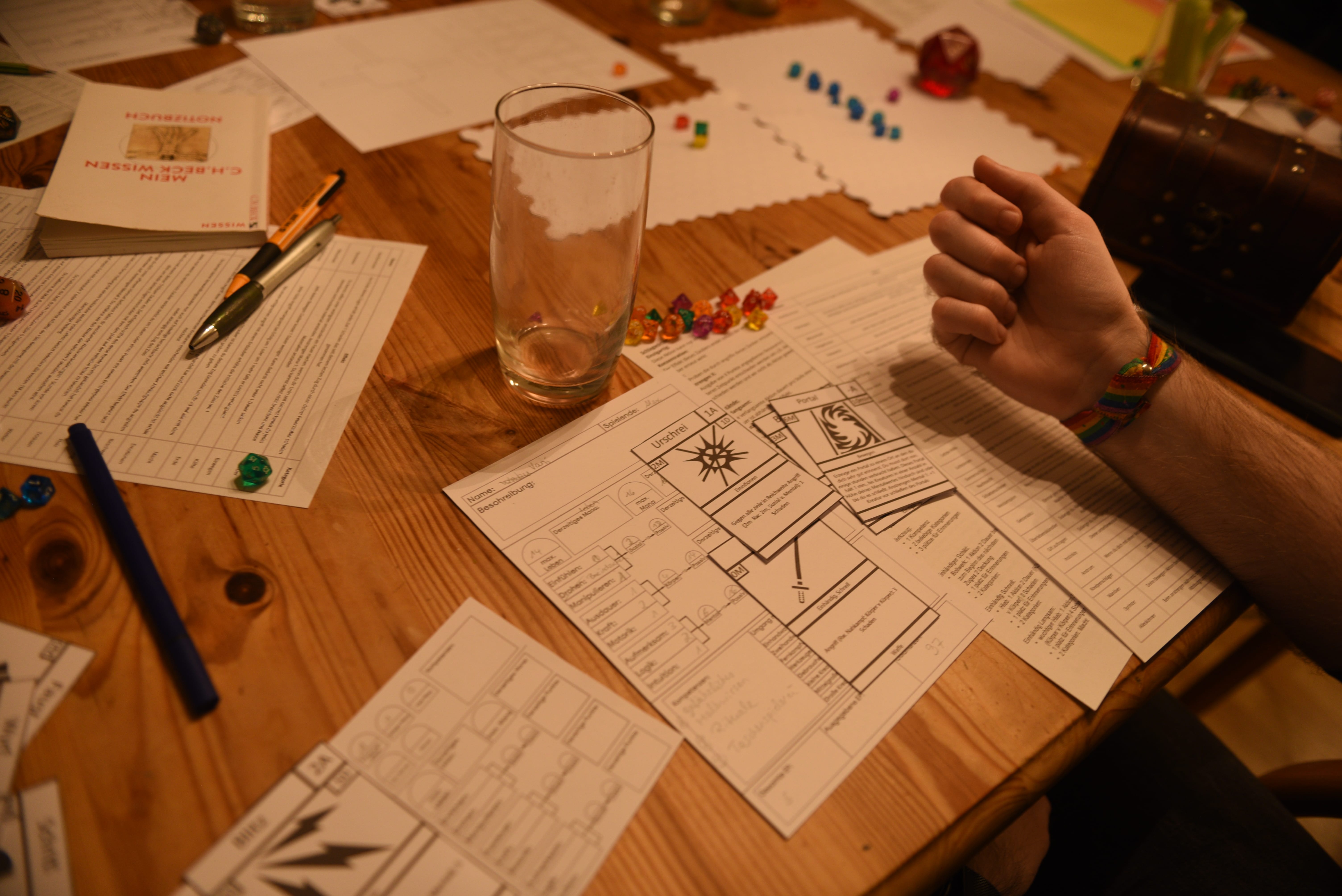
Innaro was my bachelor thesis and a really important project for myself. I always wanted to create my own Tabletop RPG, and it gave me the opportunity to put my whole focus on a single project. I went into development with the vision of a Tabletop RPG without death and came out of it with a system about Memories, their importance for stories and how they build character.
Concept
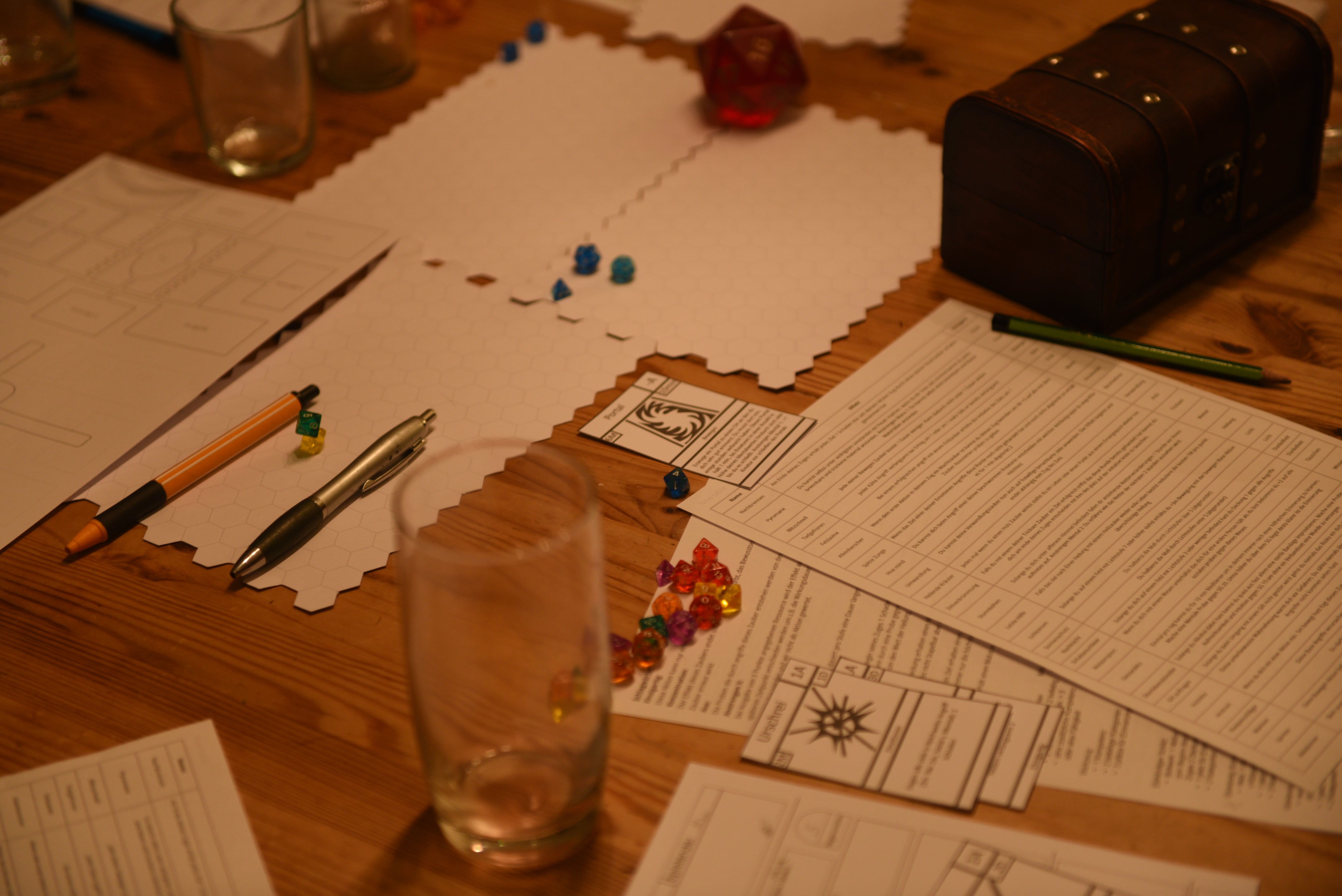
Innaro is a Tabletop role playing game about the value of memories and immortality. All characters created by the players are immortal and keep reanimating after death but replace some of their memories with new ones.
By removing the fear of death of player characters, the focus of the storytelling shifts towards a lighthearted experience about adventure, strategy and discovery. But you can also instead shift gears and try to stay on the edge of death without ever risking loosing any players to tell stories about suffering and loss of identity.
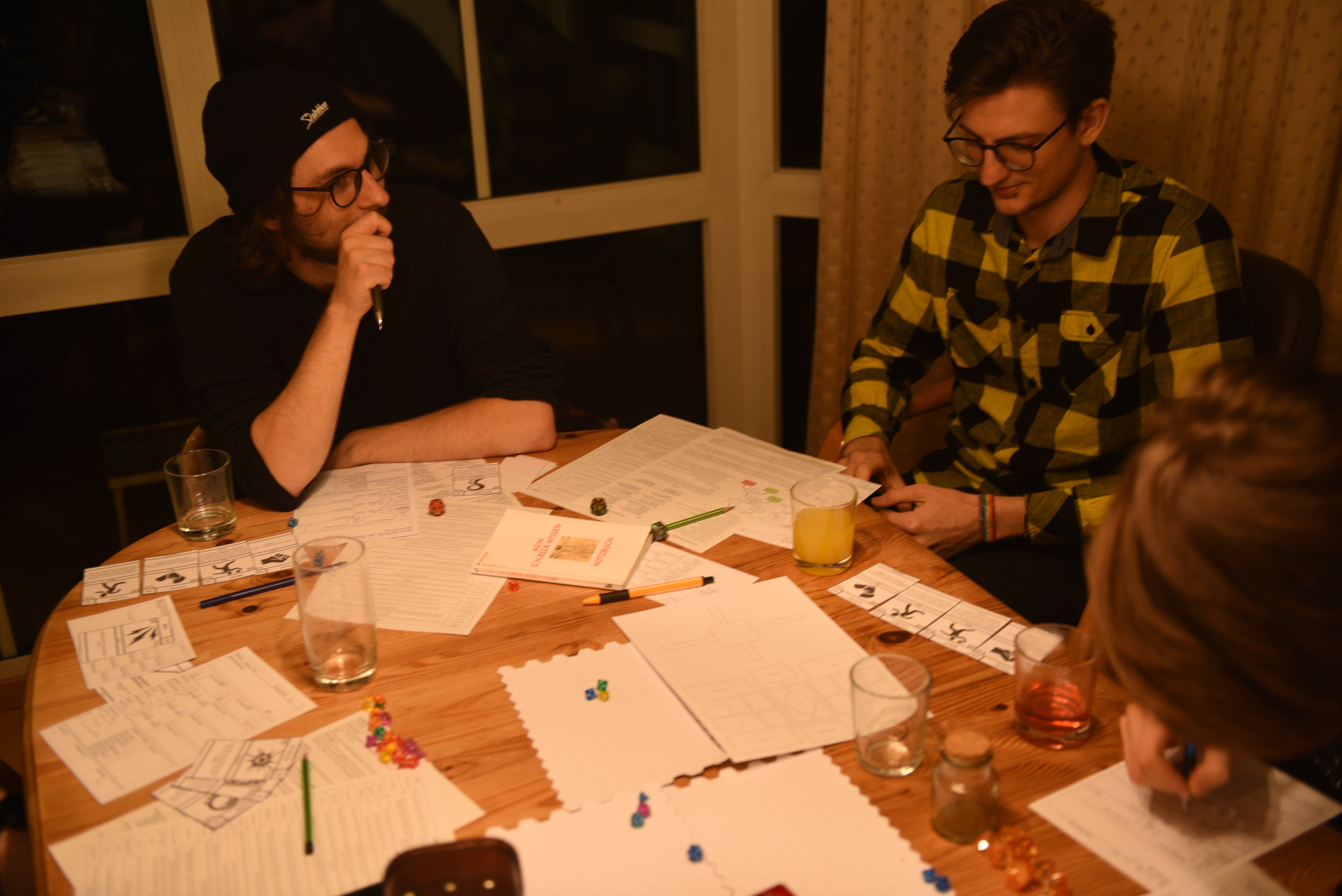
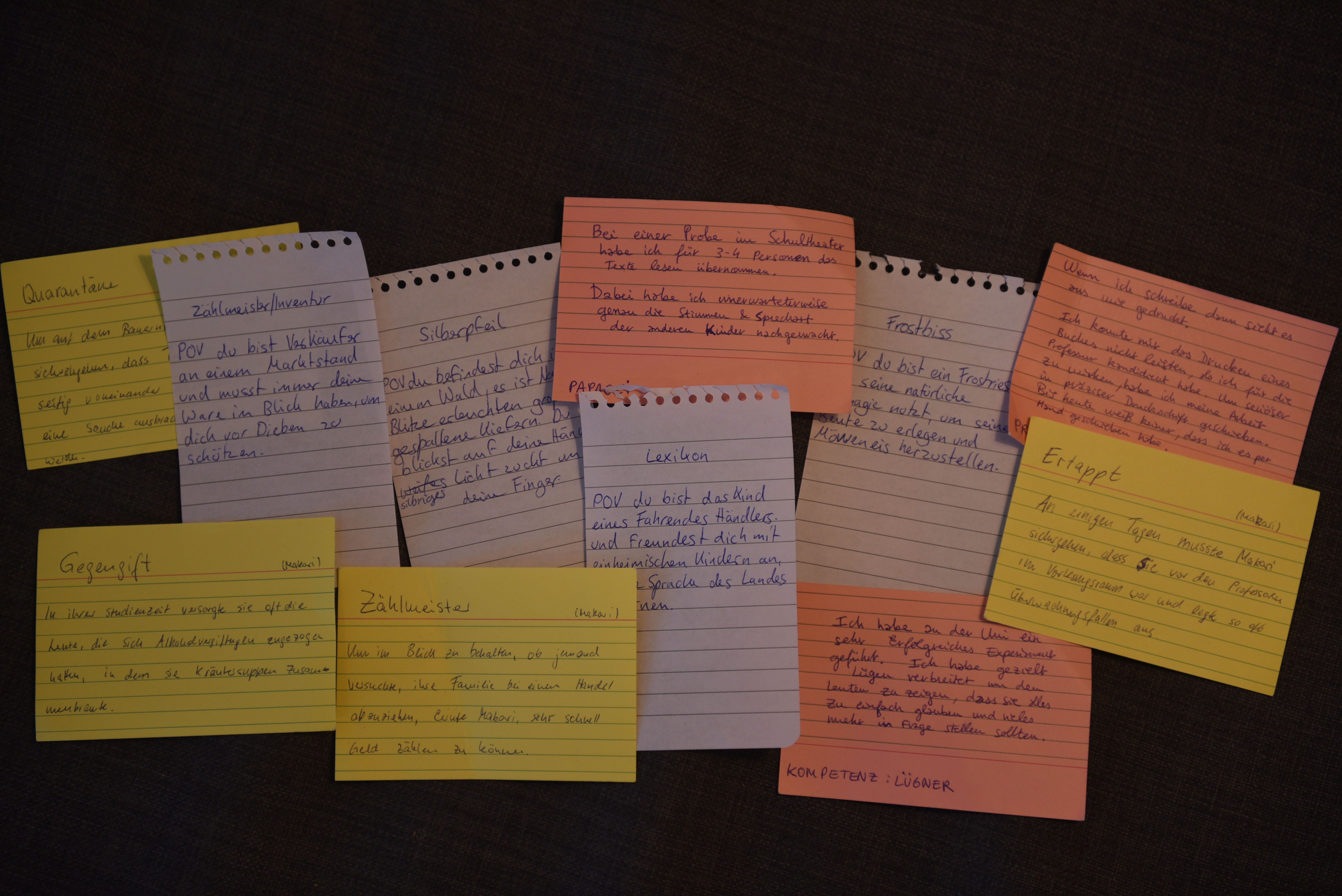
Memories in Innaro are more than just recreation of events in the brain, instead they are physical things that can be interacted with stored in objects, swapped with each other and used as a source of powerful magic. Each player can decide on their own if and how their character is willing to interact with their memories and those of others.
Heroes
Every playercharacter and some NPCs in Innaro are so called "Heroes". Once a heroe dies they conect to the so called Wake, swap some Memories with it and come back to life. It is unchosen immortality with a price on top.
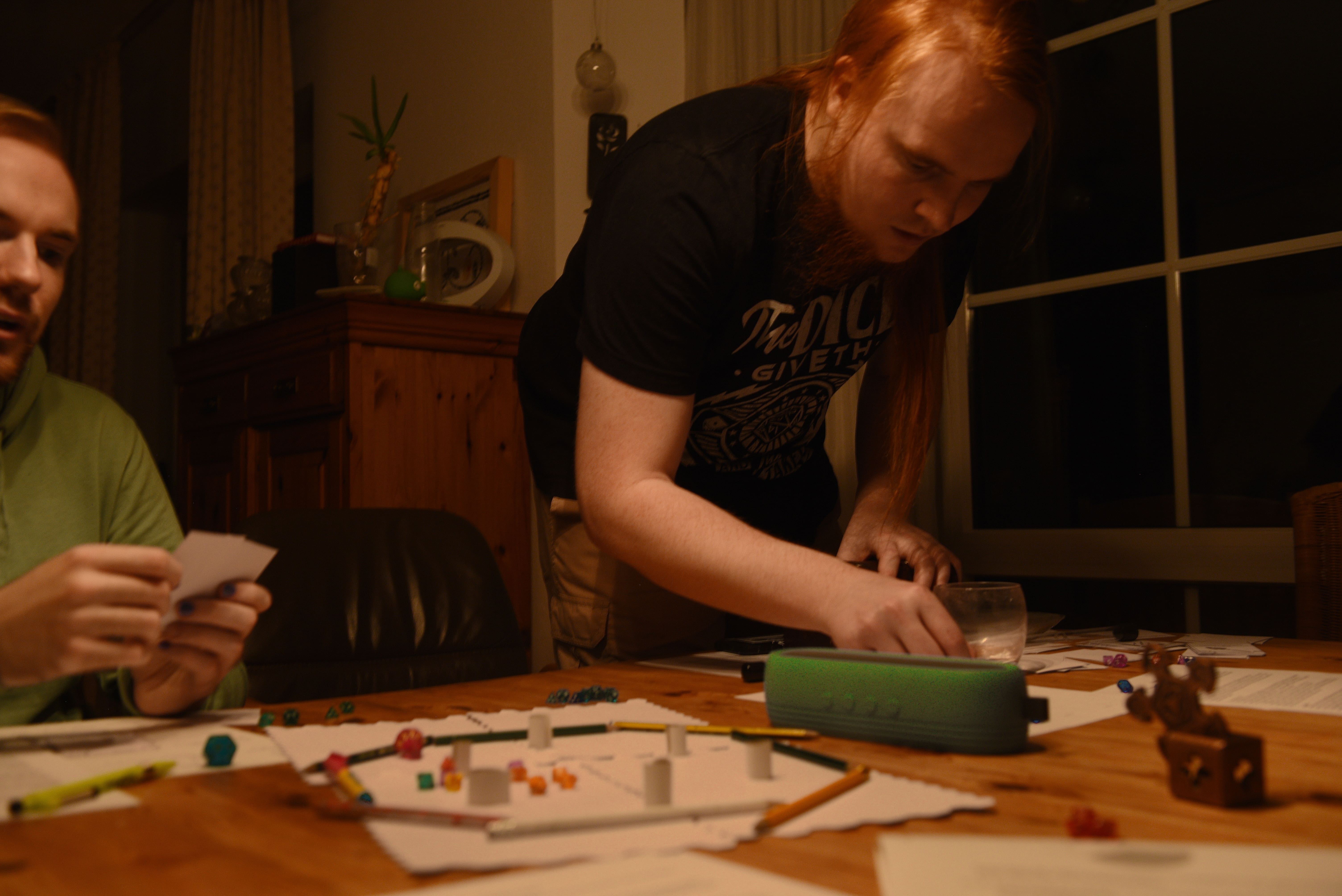
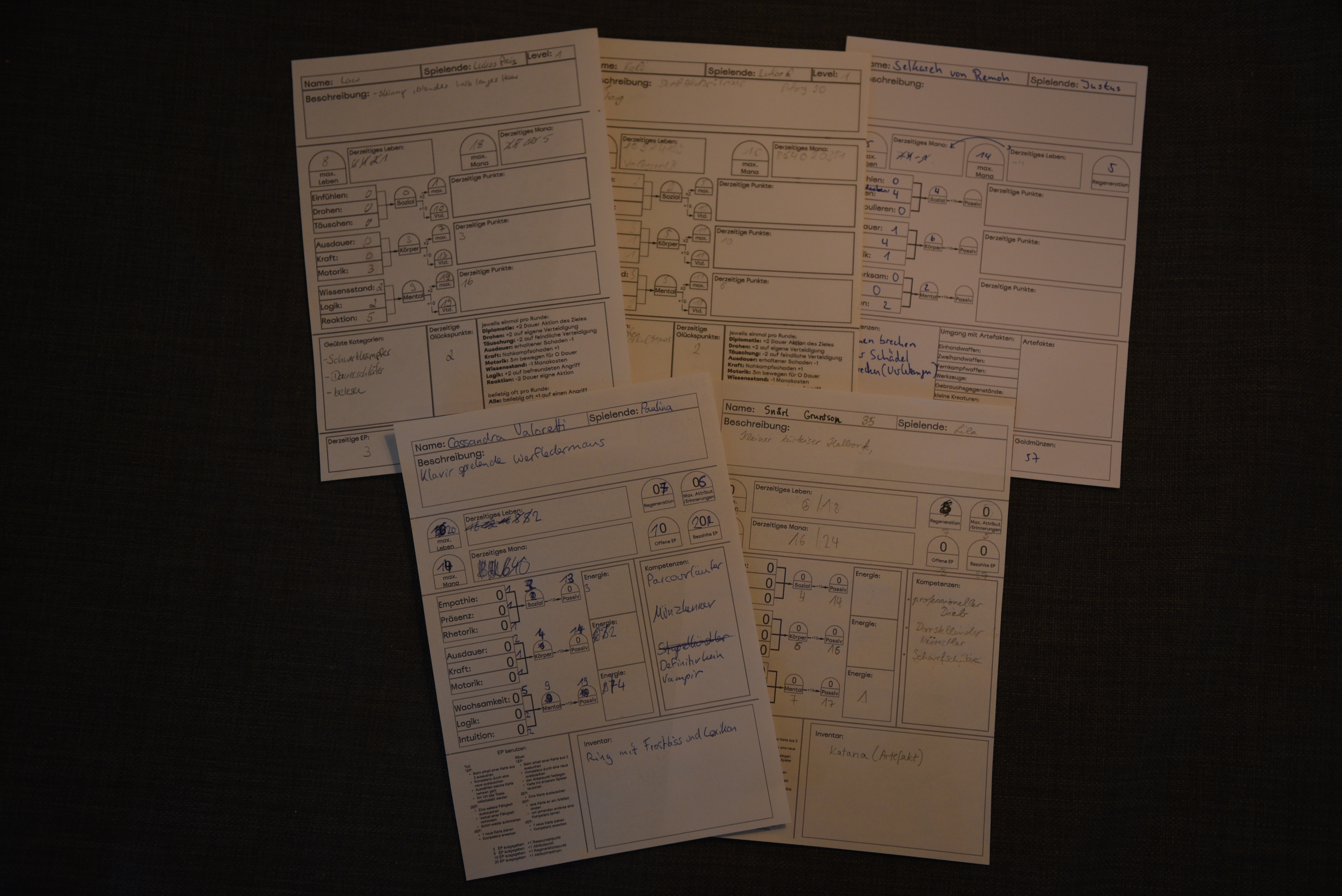
In the Rules on Innaro each character gets represented as a collection of Numbers and Words. the two most important parts of every character are their Attributes and Aspects. Attributes are numeric values and represent the fundamental physical, mental and social strength of a character. Aspects are short phrases to represent a different group of memories of a character. Some examples of Aspects are: confectioner, devilish charm or ingenious idiot.
Mechanics
Each time a character tries to do something where it is uncertain if they succeed, they need to roll a check. They roll a 20-sided Die and add one of their attributes. If they want to add more, they can also invoke one of their aspects before rolling. To do that, they describe a short memory that is tied to one of their aspects and explains how it helps in the current situation. If they still fail the challenge, they can spend a resource called energy. For each point of energy spend, they get +1 for the roll. Now depending on the result of the check a success of said action or a failure occurs in the story.
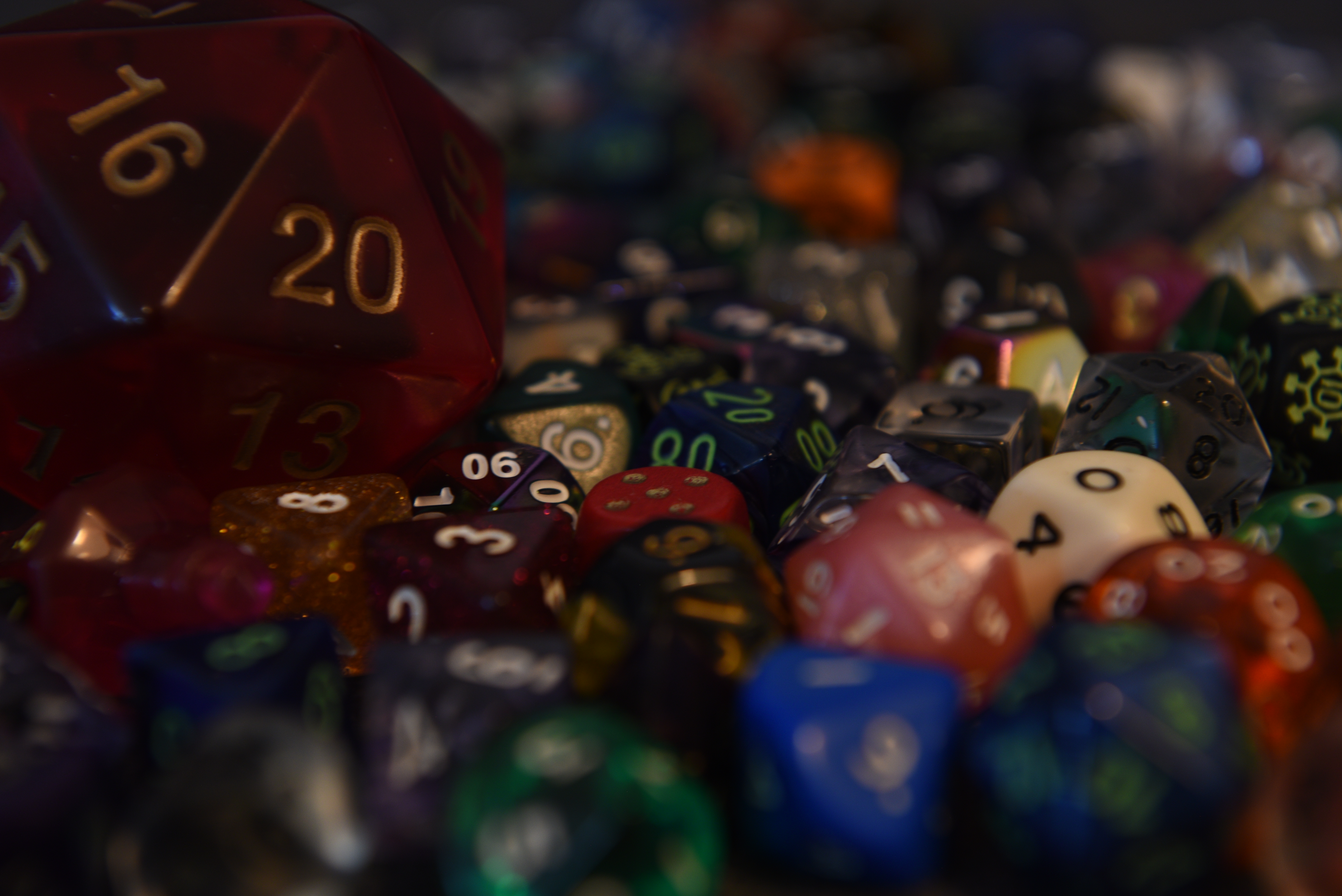

In addition to a character sheet to combine all the values important for a character. Each player also gets a number of cards that represent basic and special actions that their character can do. Some of them are magical in nature and some aren't but most of them are bound to a memory. The first time a player uses a specific ability, they need to describe said memory and tie them somehow to the ability. They can be their own memories or somebody elses given by the Wake. Each time a character dies, they swap a memory and ability with one from the Wake.
Fights in Innaro get represented through a tactical system with a Hexagon grid map and some miniatures. Each participating Character gets an initiative on the initiative board. In each round, each character has 3 Actions. Each action has a specifies speed. The faster the combined actions are, the earlier your next turn will be in the next turn order. If you are fast enough you even get a bonus action to use and if you are too slow you even can lose an action. But the slower the action, the more powerful they are to balance it out.
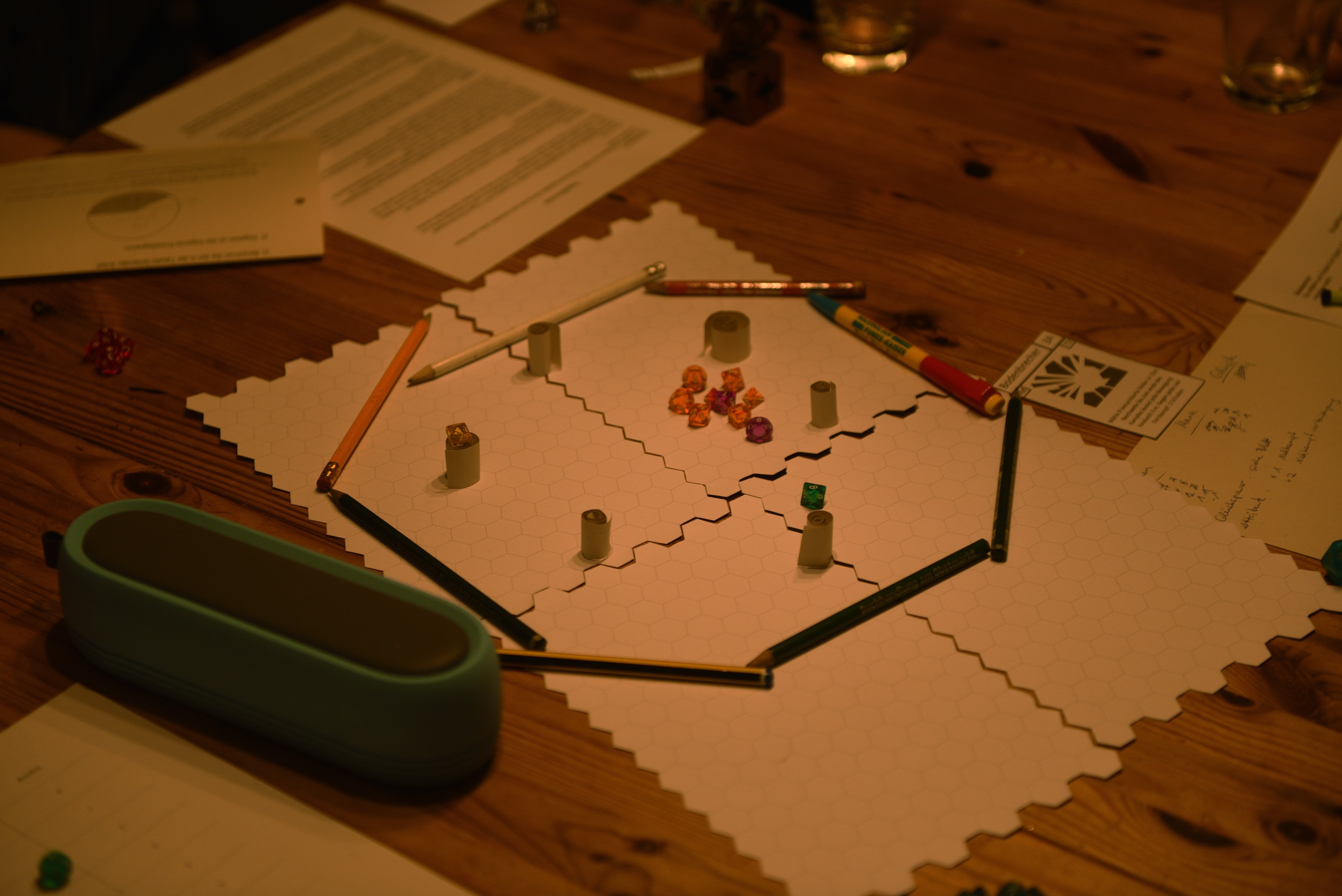
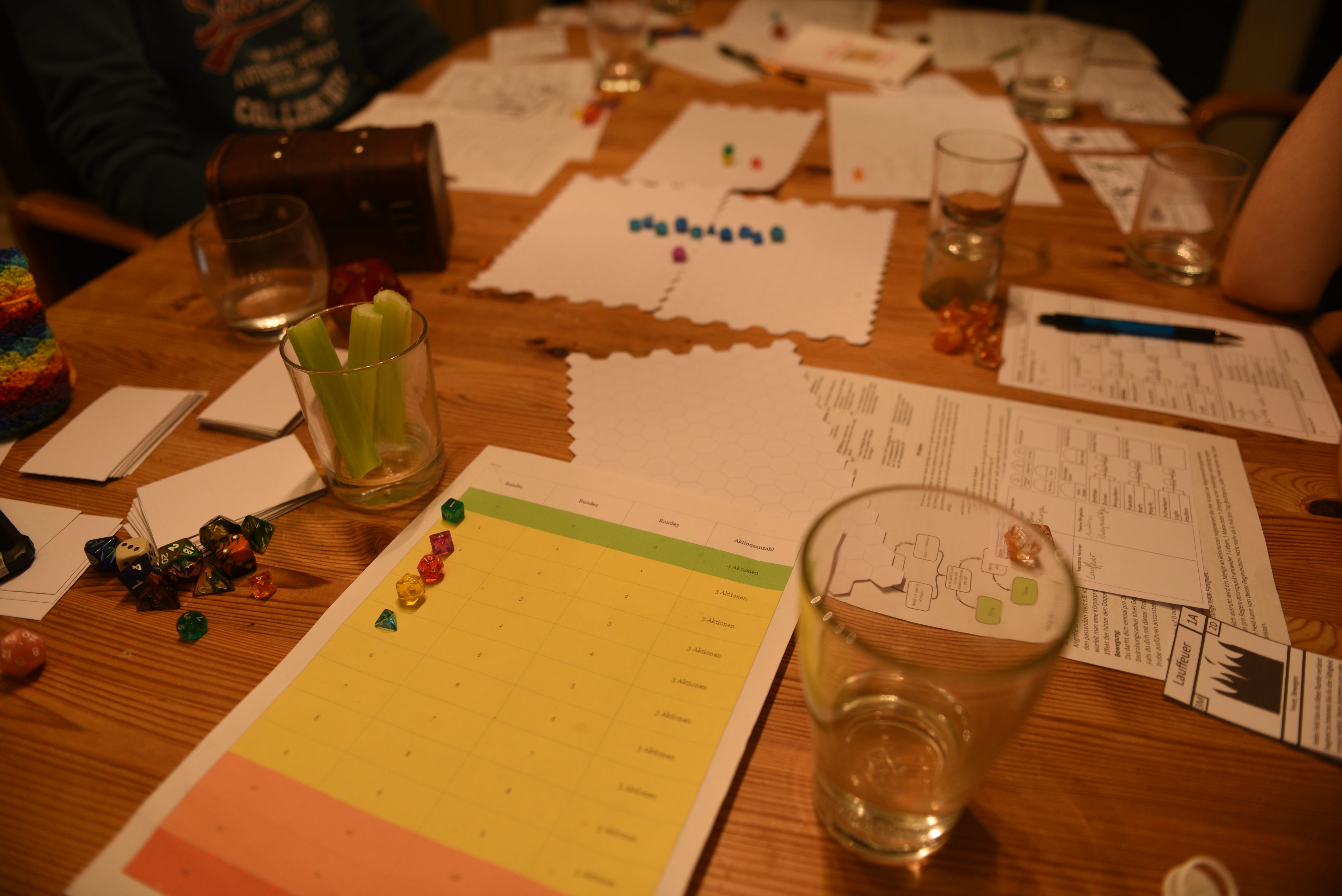
This dynamic turn order system usually leads to fun and interesting interactions like speeding up your friends so they get a bonus action, slowing an enemy down so your friend can finish them off before it is their turn or hiding for a turn before letting hell loose on your enemy with an extra action.
Key Learnings
Even though Innaro is still a prototype, I am extremely proud of it and I would love to someday finish it or at least polish what I have. There are still a lot of placeholders that I would like to replace. For example, I would like to try different random factors like Cards or Bag building instead of the usual d20 system. But some of the systems also feel fantastic, fresh and with a lot of potential. For example, I really like the way how the explanation of memories is a crucial part of every campaign, but they still feel special every time they come up.
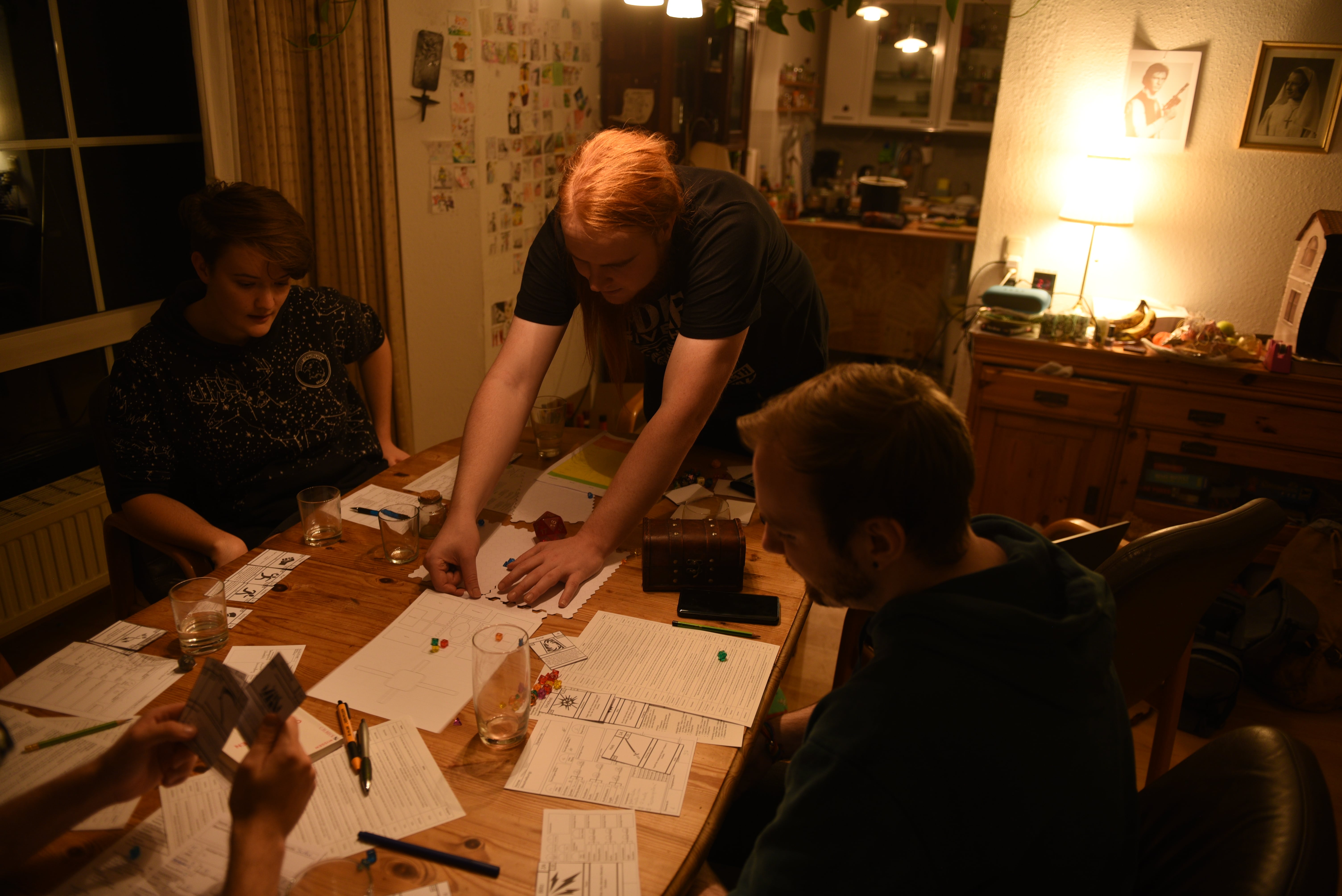
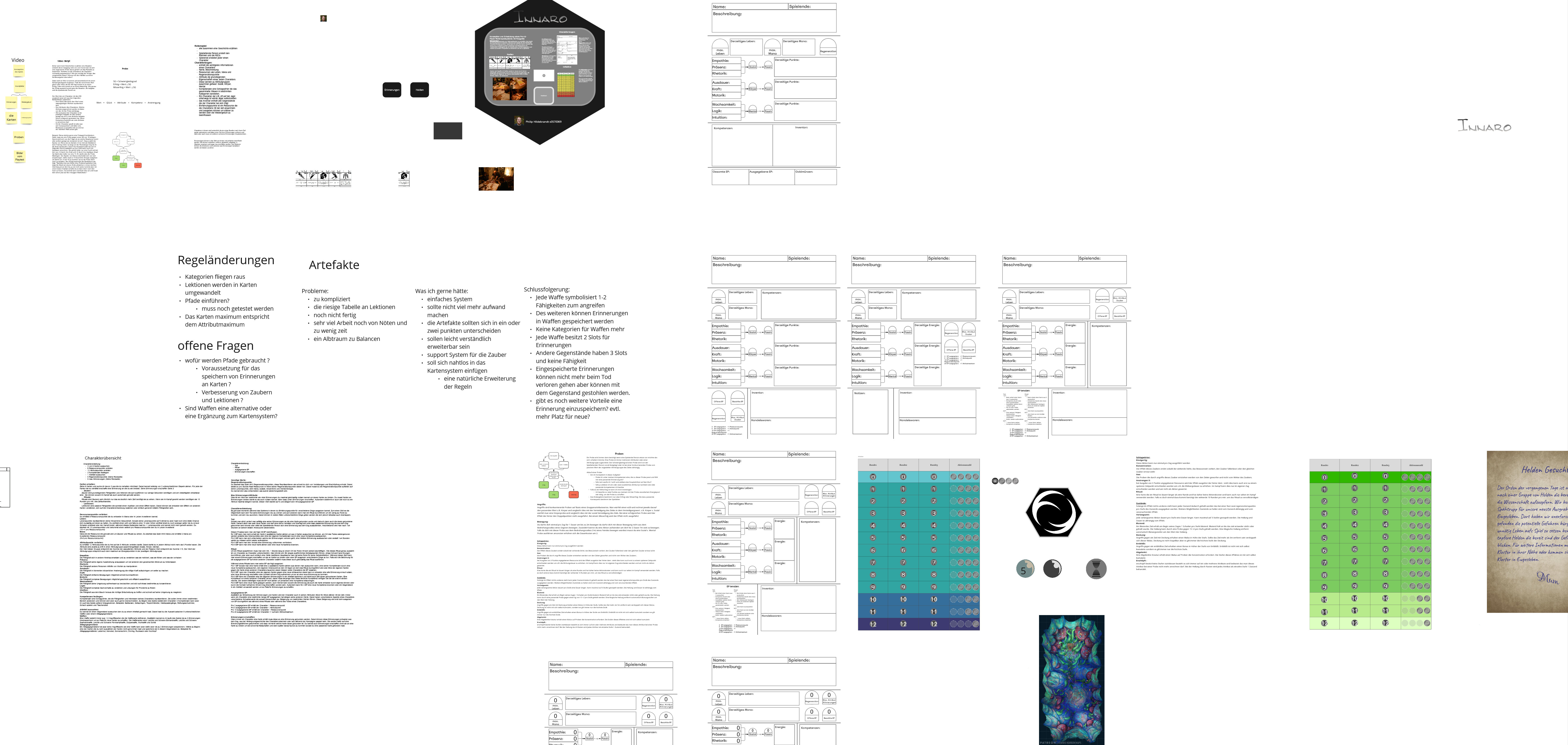
The development of Innaro taught me a lot about Pen and paper systems and how much room for innovation there still is in the realm of story telling. It was an exhilarating experience to see how a clearly defined vision can inform every single decision during the design phase. At each step of the way, I could always fall back to the fundamental goal of this project. To see if you can make a TTRPG work without death about memories and how that would turn out. I noticed how fast a project like this can explode out of proportion, and each time I went back to the drawing board to try to simplify it.
I also learned a lot about how crucial playtesting is, especially with a complex game system like Innaro and I wish I would have had more time to test more aspects of the game within different styles of play. In the end, I had too much on my plate to completely finish an enormous project like this, but I think the core ideas still shine really bright in this lovely little system.
